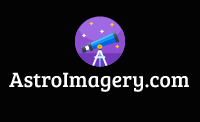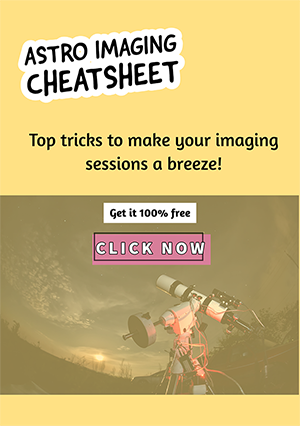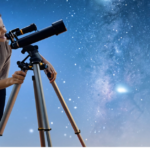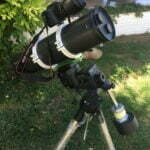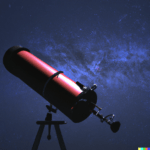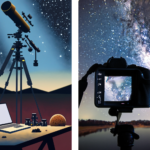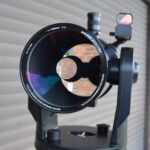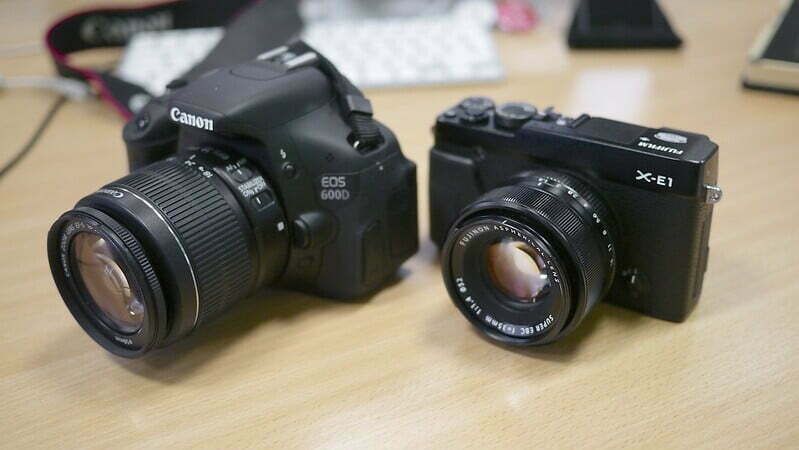
One of the first choices you’ll face when starting astrophotography is what kind of camera you will use to take the photographs you need to image your targets. If you start with a telescope you’ll need to attach the camera to the telescope and different cameras will attach in different ways. In the beginning, before you have mastered the technical aspects of astrophotography, your best bet is to go with either what you already have or the cheapest and easiest-to-learn option.
So, what is the best camera for astrophotography? In this article, I will answer this question for you.
After trying to use my iPhone, (which can be done but with limitations), I did what most beginners to astrophotography do I bought a DSLR camera. This is a very good option.
The best camera for astrophotography depends on the equipment you have and the targets you want to image. It also depends on your experience and understanding of photography. DSLR cameras are popular and easy to use but some prefer electronic cameras specifically designed for astrophotography.
Good results can be had from using DSLR cameras, especially those made by Canon or Nikon, but any brand will do as long as they are of reasonable quality. These cameras can be attached to a telescope or used with a lens to photograph images of the sky.
The advantages of DSLR Cameras For Astrophotography
Apart from DSLR cameras being generally cheaper to buy than dedicated electronic cameras they can also be used for general photography. It may be possible to start using an existing camera that a beginner already has or can borrow from someone. In addition, good starter cameras are available online for less than $200.
As mentioned above, a DSLR camera can be used for astrophotography in two ways, through a telescope or using different lenses. In this case, lenses can be changed improving the possible images available and changing the field of view. In this regard, DSLR cameras are quite practical. But what is the best DSLR for astrophotography?
I chose to use a Canon and made a mistake initially as I bought a cheap older model without a live view. Live view is absolutely necessary to frame your deep-sky target and to focus your camera in the dark. So, I changed my camera to the one I still use now, a Canon 600D.
Attaching the DSLR camera to a telescope is quite easy once you figure it out. With most Canons, you need a t-adapter to connect the camera to the focuser of the telescope. I also have three lenses so I can use my camera with a lens to photograph the night sky. I have a Samyang 135mm, a Canon EF-S 85mm, and a Canon EF 30mm lens.
The Advantages of Using an Electronic Astrophotography Camera
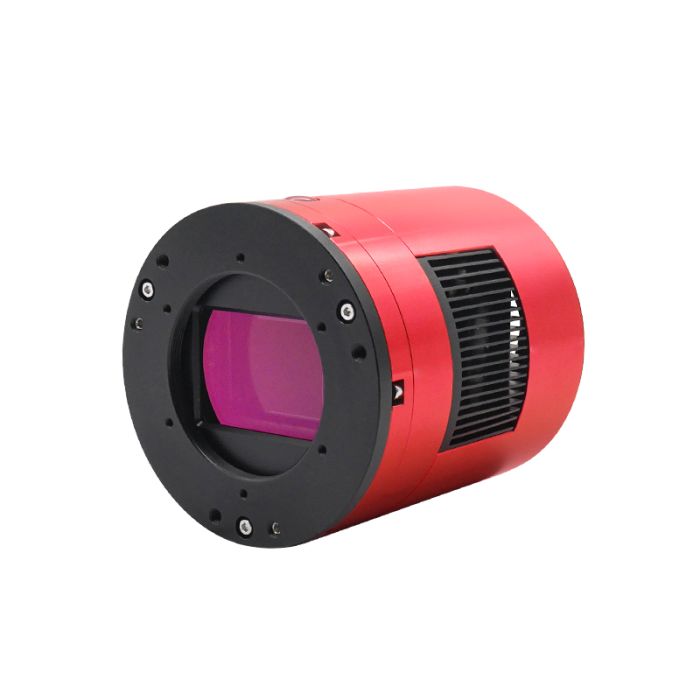
There are many different models of electronic cameras for astrophotography. One of the biggest names in this field is Zwo. These cameras are quite expensive but produce high-quality pictures with details such as hydrogen-alpha sensitivity for nebulae. You can get a color version of this type of camera or a mono-color version.
They are very easy to attach to a telescope and use. They are also suitable for linking to a laptop or PC and this makes it easy to use software to process the pictures even as they are being taken.
Dedicated astrophotography cameras can produce very clear images and these can be better than those taken with a DSLR. They cannot be used, though, for general photography.
One other advantage to consider is that generally, DSLRs are heavier than dedicated astrophotography cameras. Why is this important? Well, your mount has limited payload capacity and weight could be important especially if you have a light setup. The heavier the equipment you have on your mount, the better quality mount you need, and the more weight you place on the mount the more likely it is that tracking could be affected negatively. Balance is also a major concern with EQ mounts and this is obviously better to achieve with lighter setups.
Most equatorial mounts have a weight capacity but most people advise to only load the mount with about 50% of full capacity. Dedicated cameras should therefore lighten your load.
Comparison of Camera Weights
| Camera | Resolution (MP) | Weight (KG) | Cost ($) |
| Nikon D850 | 45.4 | 0.915 | 2996 |
| Canon EOS Ra | 30.3 | 0.58 | 1549 |
| Sony A7 III | 24.2 | 0.65 | 1998 |
| Canon EOS 6D Mk.II | 26.2 | 0.765 | 1549 |
| ZWO ASI183MC | 20.1 | 0.14 | 560 |
| QHY 8L | 6.0 | 0.40 | 1120 |
| Canon 600D (EOS Rebel T3i) | 18.0 | 0.57 | 773 |
My choice of camera so far is the last one on the above list, the Canon 600D also known as the Rebel T3i. I have had it Astro modified so it is more sensitive to hydrogen alpha wavelengths.
Conclusion – What is the best camera for astrophotography?
There is no definitive answer to this. You may prefer the DSLR as it is durable and has a long history of use for astrophotography and you can get some incredible photographs of the night sky and deep sky objects with them. They have the added versatility of use with or without a telescope and you can interchange lenses as you wish. DSLRs can also be used with clip-in filters to block out light pollution or take narrowband images at different wavelengths.
On the other hand, perhaps you prefer completely digital integration with software on your computer and the ability to cool the electronic dedicated camera. The quality of images for astrophotography is excellent and generally, they are easy to use.
Here is a great video that explains the main differences between DSLRs and Astrocameras, hopefully, this will help you make your choice and help you understand that both have their positives and negatives.
I hope this page has given you some insight into which is the best camera for astrophotography and I wish you success on your Astro imagery journey!
